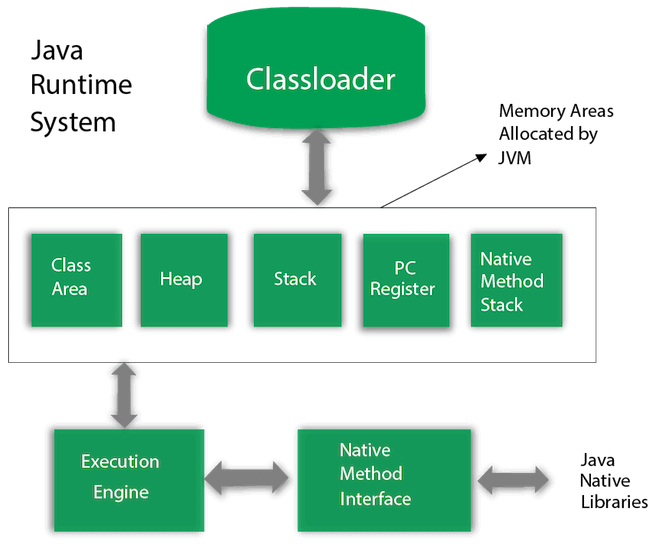Primitive Type vs Reference Type
8 Primitive Data Type
https://en.wikibooks.org/wiki/Java_Programming/Primitive_Types
| boolean | A binary value of either true or false |
| byte | 8 bit signed value, values from -128 to 127 |
| short | 16 bit signed value, values from -32.768 to 32.767 |
| char | 16 bit Unicode character |
| int | 32 bit signed value, values from -2.147.483.648 to 2.147.483.647 |
| long | 64 bit signed value, values from -9.223.372.036.854.775.808 to 9.223.372.036.854.775.808 |
| float | 32 bit floating point value |
| double | 64 bit floating point value |
Object Types
| Data type | Description |
| Boolean | A binary value of either true or false |
| Byte | 8 bit signed value, values from -128 to 127 |
| Short | 16 bit signed value, values from -32.768 to 32.767 |
| Character | 16 bit Unicode character |
| Integer | 32 bit signed value, values from -2.147.483.648 to 2.147.483.647 |
| Long | 64 bit signed value, values from -9.223.372.036.854.775.808 to 9.223.372.036.854.775.808 |
| Float | 32 bit floating point value |
| Double | 64 bit floating point value |
| String | N byte Unicode string of textual data. Immutable |
Reference Types
| class | A class is also a data type – a non primitive reference data type |
| interface | An interface is a reference type in Java, it is similar to class, it is a collection of abstract methods. |
| array | An array’s type is written as type[] , where type is the data type of the contained elements; arrays are objects, are dynamically created, and may be assigned to variables of type Object |
| enum | An enum type is a special data type that enables for a variable to be a set of predefined constants. |

